The Year of the Bike Fitter
Your local bike shop may have had a pretty darned good last 12 months, especially considering what the landscape looked like a year ago, when the only thing we knew is that social interaction was no longer a *thing*, and would not be for the foreseeable future.
I wrote a year ago that, yes, it was actually okay to ride your bike outside, in certain conditions, but that was not true in – say – Germany, Spain and Italy. If you had anything to do with bicycles, as a consumer or if you were in the bike business, it was bleak out there!
To that, add this: Bike imports into the U.S. had already been in decline since 2012. The imports graph looks like the course profile of a high-speed pedaling descent – bike imports have been pedaling downhill at 33 miles-per-hour for 8 consecutive years. Then the pandemic hit. How could a bike shop survive a triple whammy of an industry in decline; huge job losses among potential customers; and the inability even to ride a bike outside in many places?
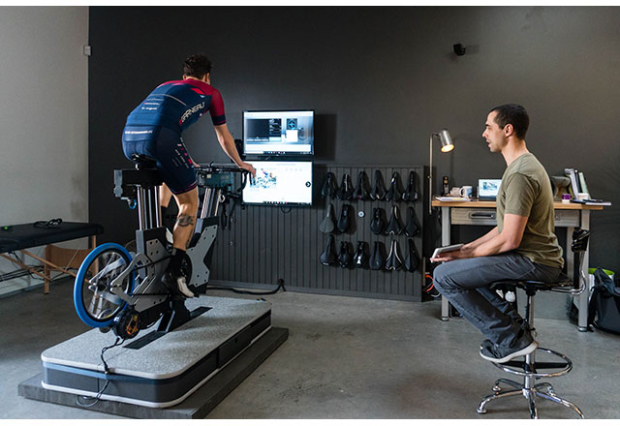
The last I looked, 2020 was shaping up to be a year unlike any since 2012 in terms of imports, and 2012 was a great year. Bike shops were up in overall store sales, year over year, even with closed showrooms. Through the first half of 2020 they “enjoyed” horrible parts and accessory sales but new bike sales, along with service revenue, went through the roof (and remain so today). The only thing that’s keeping 2021 from being a year on par with the banner year of 2020 is supply.
Supply problems aren’t even a function of factory slowdowns anymore. Yes, COVID plant closures hobbled manufacturing in Asia. But Shimano, SRAM and the bike brands are beginning to catch up in their parts backlog. The problem is getting the goods from Asia to destinations elsewhere. There is even – and this seemed hard to believe a year ago – a dearth of shipping containers. For the first time in modern memory empty containers are on container ships sailing their way back to Asia.
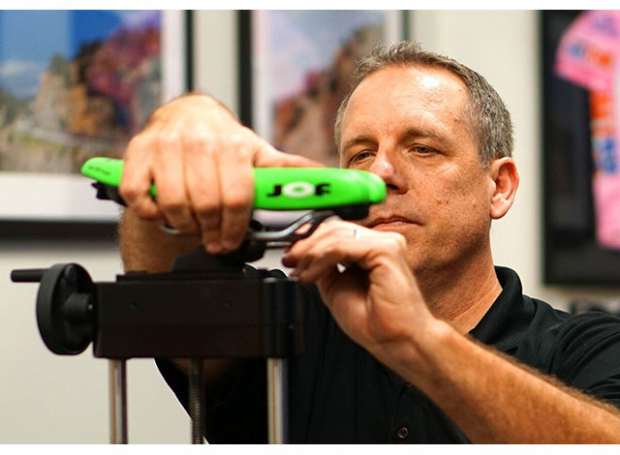
Bike fitters have been a casualty of all this. They make their money face-to-face, and unless you’re a food store or other essential retailer, face-to-face is a bad pandemic business model. But I believe this will change, and change big, for those bike fitters who have made and will make it through the pandemic. (About 500 bike fitters in North America are now listed on our fitter listing.) Why is the prognosis for bike fitters positive, at least in my view? Three reasons.
First, there is a lot of consolidation of the IBD channel (IBD stands for Independent Bike Dealer, which describes your LBS, that is, your Local Bike Shop). Industry analyst Rick Vosper just wrote about this. In fact, I think he understates this, if anything, because I get calls from the person selling his or her bike shop to a major bike brand, asking me to help sell that shop’s fit bike. It’s becoming clear to me that sales of bike shops are often asset purchases these days, and the fit bike is one of the assets not being purchased. This gives me a glimpse of how much acquisition traffic there is.
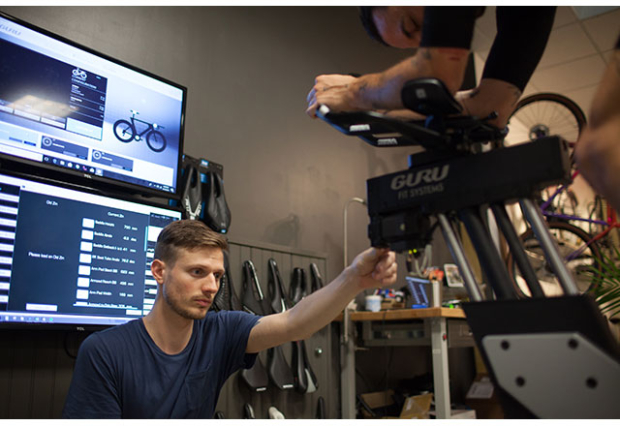
Second, the very fact that these fit studios in the IBDs are coming up for sale causes me to wonder whether a lot of IBDs are retreating from what I’ll call Boutique Services, in favor of a focus on the bread & butter stuff.
Third, a lot of brands (often specific to these Boutique Services) have reached out to me, asking whether I can help forge a relationship with the bike fitter community.
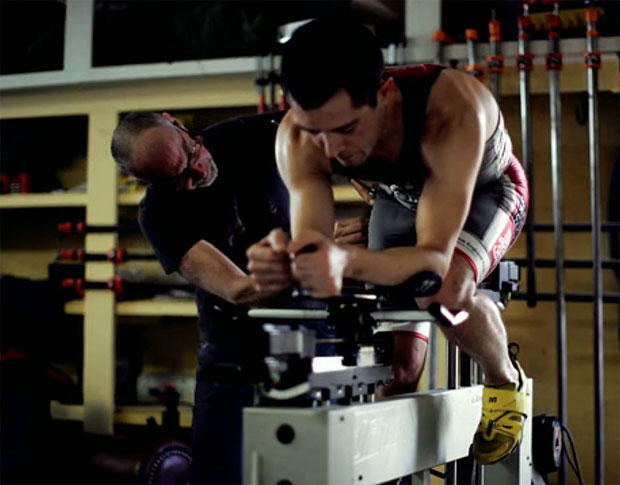
What is a Boutique Service in my parlance? If you haven’t already, you’re going to read on Slowtwitch and elsewhere about tech that’s fairly new to you and me. These are aero sensors, with an interface to your bike’s power meter, and it’s kind of like a wind tunnel on your bike. You can field test with accuracy positional changes, prospective helmet and wheel products, and see what actually works for you aerodynamically. Brand examples are Notio, Gibli and the now-ready-for-prime-time Aerolab. This is not an IBD product. This is a bike fitter product.
I would say bike-fitter-plus-coach product (a service provided by a coach who also does bike fit), but I think in the real world the enterprising and successful fitter will have a wrenching component to his business. Here’s a related example. Let’s say you want to upgrade your bike with full length armrests, perhaps as a result of aero sensor testing. They’re now down to $400-and-change (see the Vision product below) versus the $3,000 price tag when these first started to show up on the market only a couple of years ago.
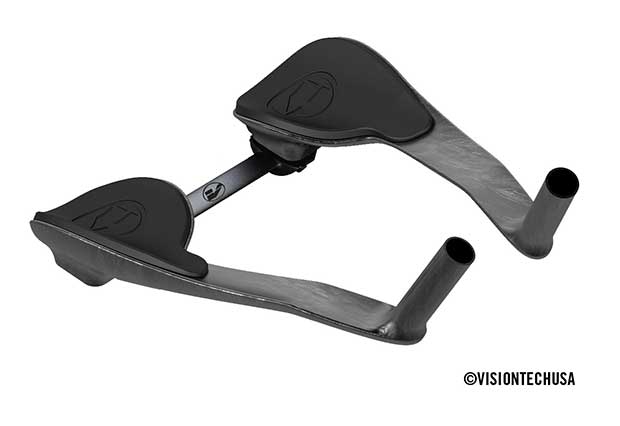
What is faster for you? And, in what config? Mantis (hands high) or flat? There’s a current thread on our Reader Forum on hour-record-holding Victor Campenaerts and his TT position for Paris-Nice, which may signal a not-so-fast on the arms-up position. Who’s going to find out, with data, which is more aero for you? My guess, it’s less likely to be your LBS, more likely the remit of your bike fitter.
This is why I’m getting pelted with brands asking me for bike fitter intros, and the aero sensor is just one product class among many who're looking to bike fitters. The list of things that the fitter is a better, well, fit for, as a service provider, is growing. But these Boutique Services often require mechanical expertise. Hard good brands used to look askance at bike fitters. Speedplay was a notoriously hard brand to get, if you were a bike fitter. But Wahoo Fitness bought that brand a year and-a-half ago; Speedplay products will soon relaunch; and Wahoo Fitness understands the value of bike fitters as a sales channel for a technical product like Speedplay.
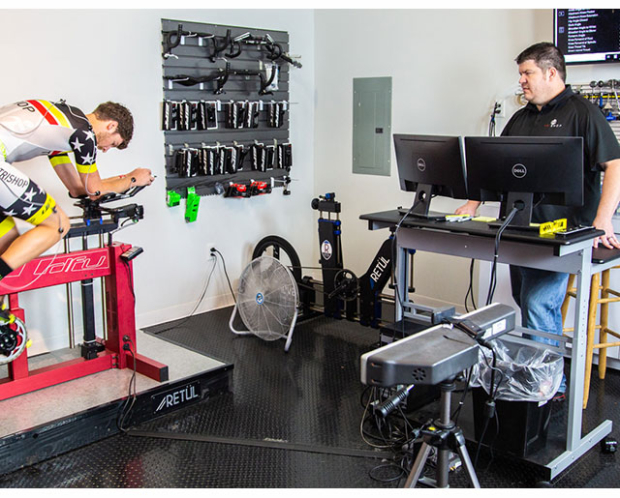
I add all this up, and what I come up with is that the bike fitter is going to become a different thing; a bigger thing; and I suspect some part of the conventional bike shop network will refocus on traditional business and jettison Boutique Services.
Assuming all this comes to pass, as our social interactions return to normalcy you might find a reason to visit your bike fitter more often (and for more than just a bike fit session).
[Images, from top: Jonathan Blyer ACME Bicycle Co in Brooklyn, NY; Jim Manton of ERO Sports in SoCal; Colin Tanner of ACME Bicycle Co; a scene of me (off the bike) instructing in a F.I.S.T. Bike Fit workshop; Trent Nix of metro-Dallas, who's pursuing enhanced opportunities, but not other interests, as he remains a keen student and teacher of bike fitting.]



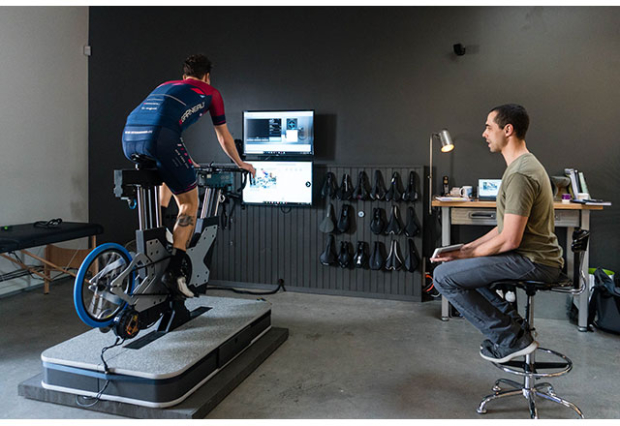
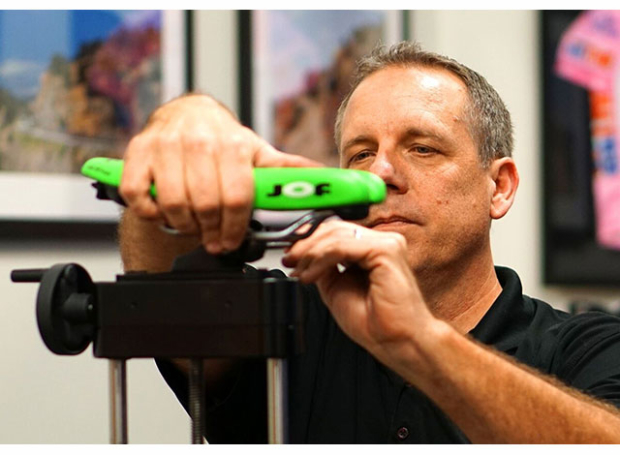
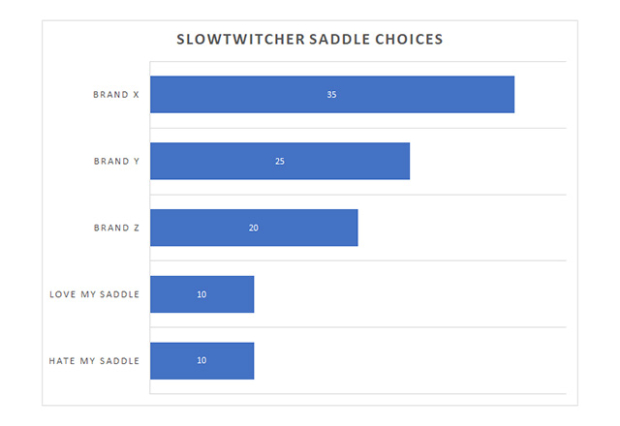

Start the discussion at forum.slowtwitch.com